Urban farming and local food supply chains have never been more popular. Sustainable agriculture may sound intimidating to non-farmers, but it is achievable in every household, even urban ones. Although not all homes are built to have gardens, you can run your own mini farm in in whatever space you may be staying in. Indoor farms are believed to be the future of urban farming, their technologies promoted as a solution to the problem caused by climate change and the inefficiencies of the global food production system.
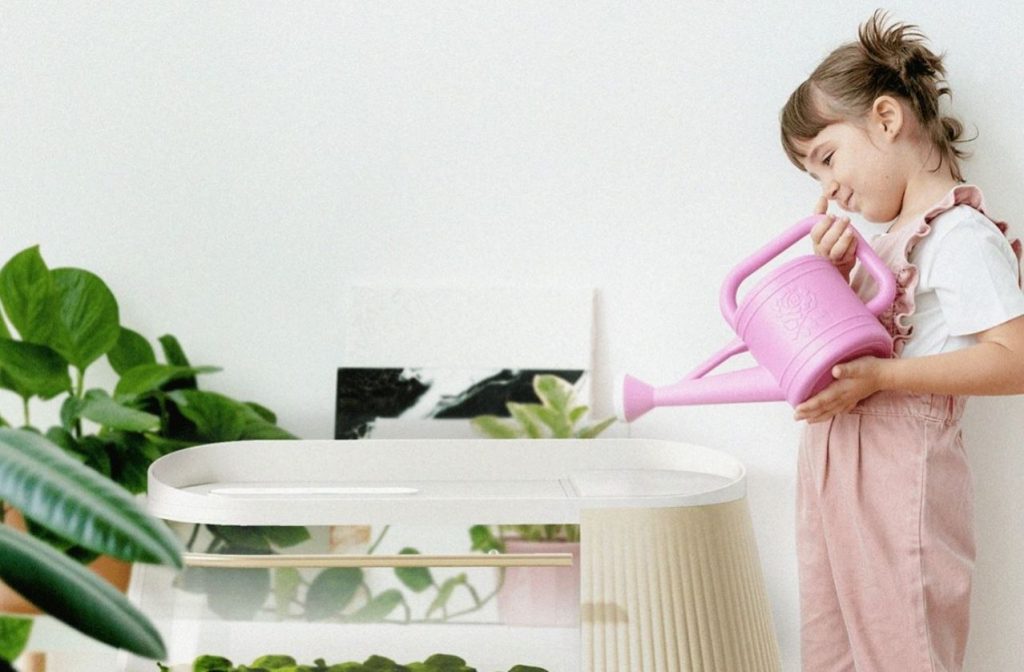
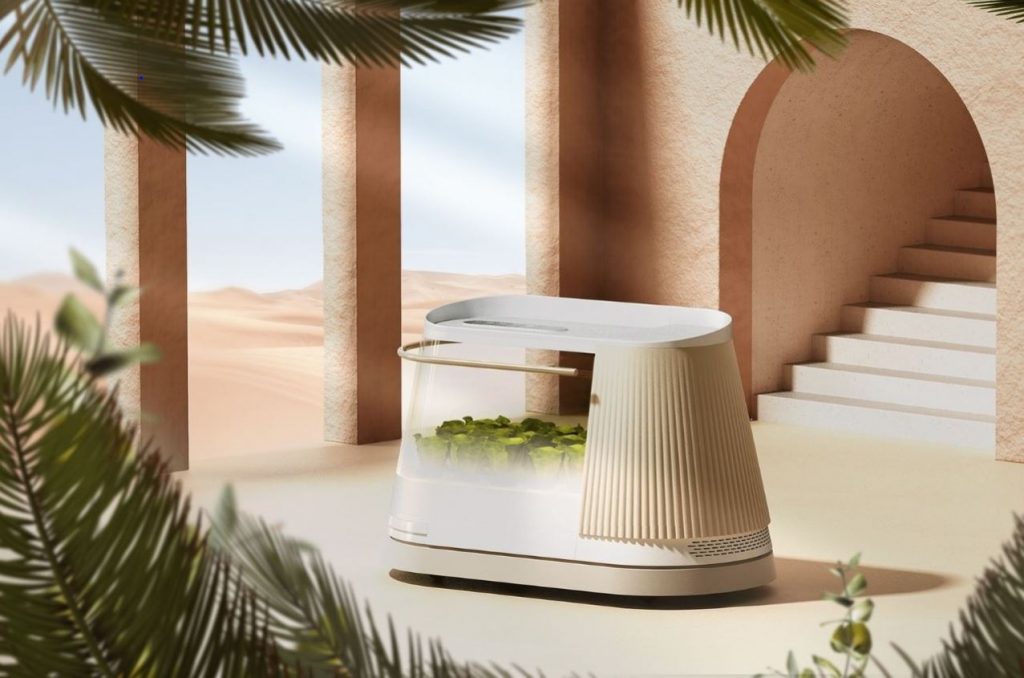
The Oasis by Hyeona Cho (also header image)
The Oasis developed by Korean designer Hyeona Cho is a smart home farm enabling users to grow their own greens and store them before consuming them. Inspired by mountains and desert oasis, the design comprises a mini-greenhouse with a transparent cover. The device uses the principle of hydroponic farming—that’s the art of growing plants without soil.
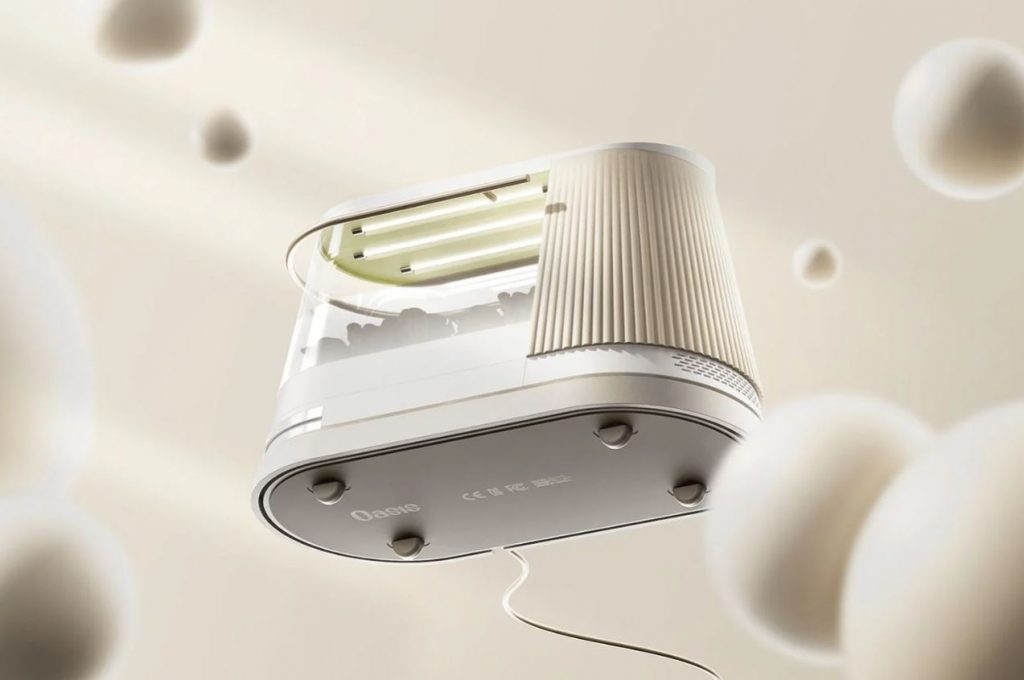
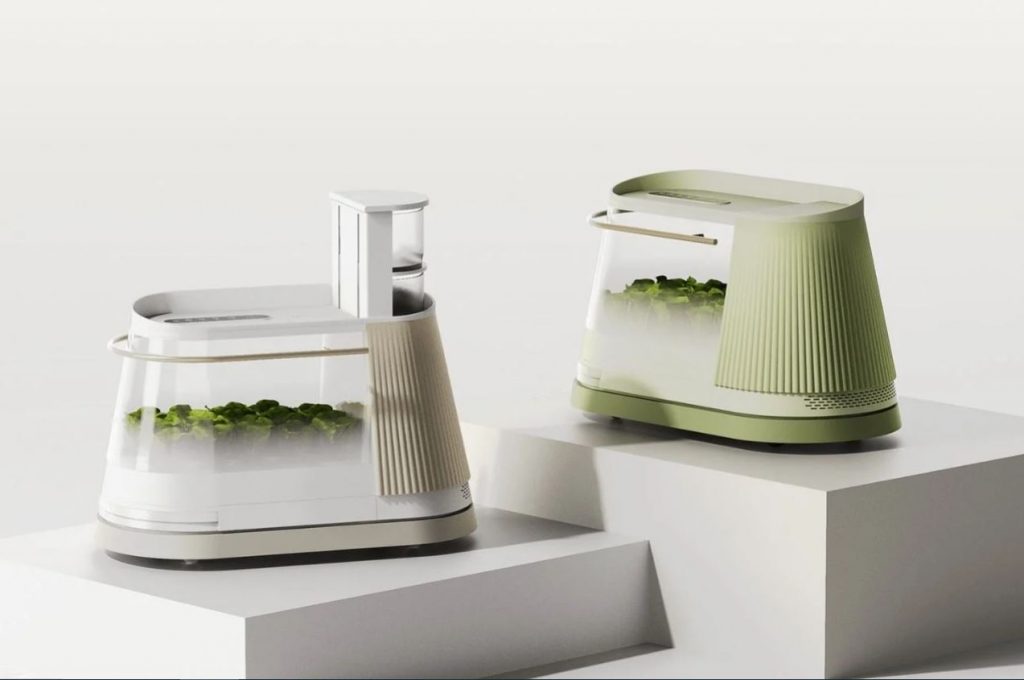
The Oasis by Hyeona Cho
What makes The Oasis different is a compartment called Fresh Keeper where one can store vegetables they harvested without needing to move them to the refrigerator. The user can record the storage date and set the right temperature, so the crops won’t lose nutrients.
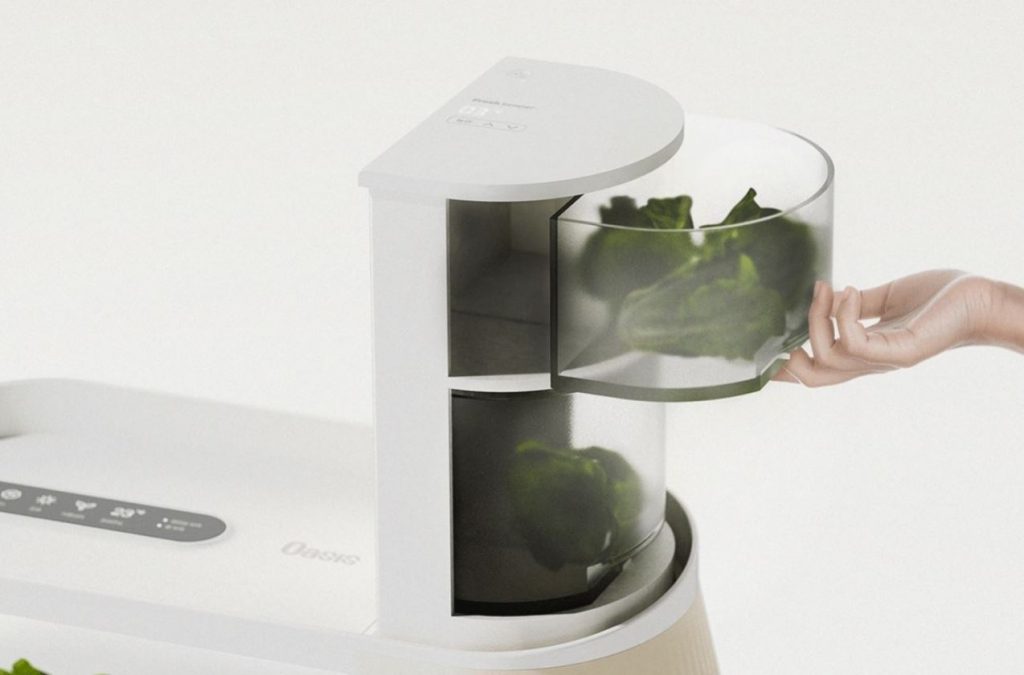
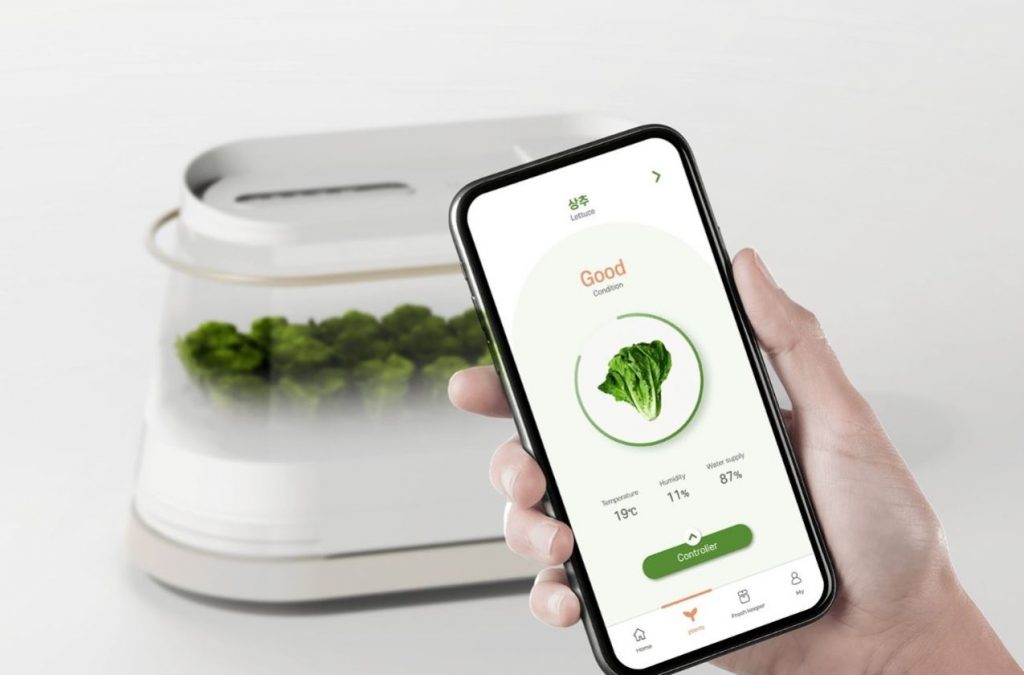
The Oasis by Hyeona Cho
The smart farm comes with an app that monitors water levels and tells the user when there is not enough water in the tank. It also provides other stats that can be easily understood, even for a non-farmer.
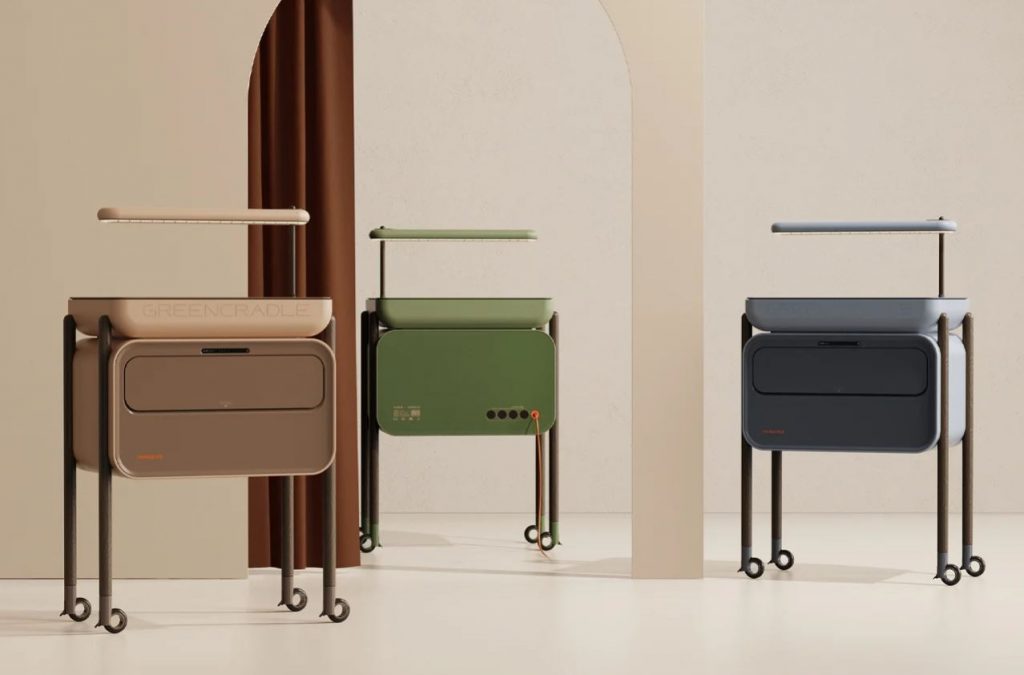
Paradise by Robin Akira (via yanko design)
Seeking to not only promote urban farming but also reduce domestic waste, designer Robin Akira has conceptualized an automated plant cultivator that doubles as a compost bin. Named Paradise, the appliance comprises a rolling cart that consists of modular units working together to provide optimal conditions for growing plants.
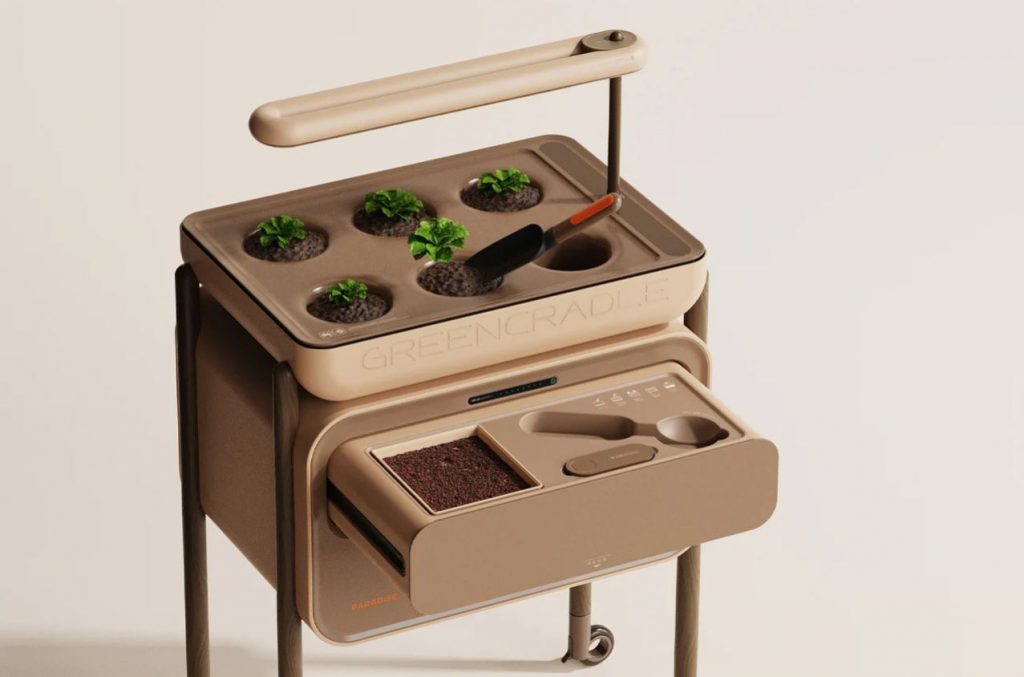
Paradise by Robin Akira (via yanko design)
The first module is lined with six integrated planters. Underneath it, there is a water reservoir used to collect extra water when the plants above are watered, while above the module, there is an LED strip that pours artificial sunlight over the plants.
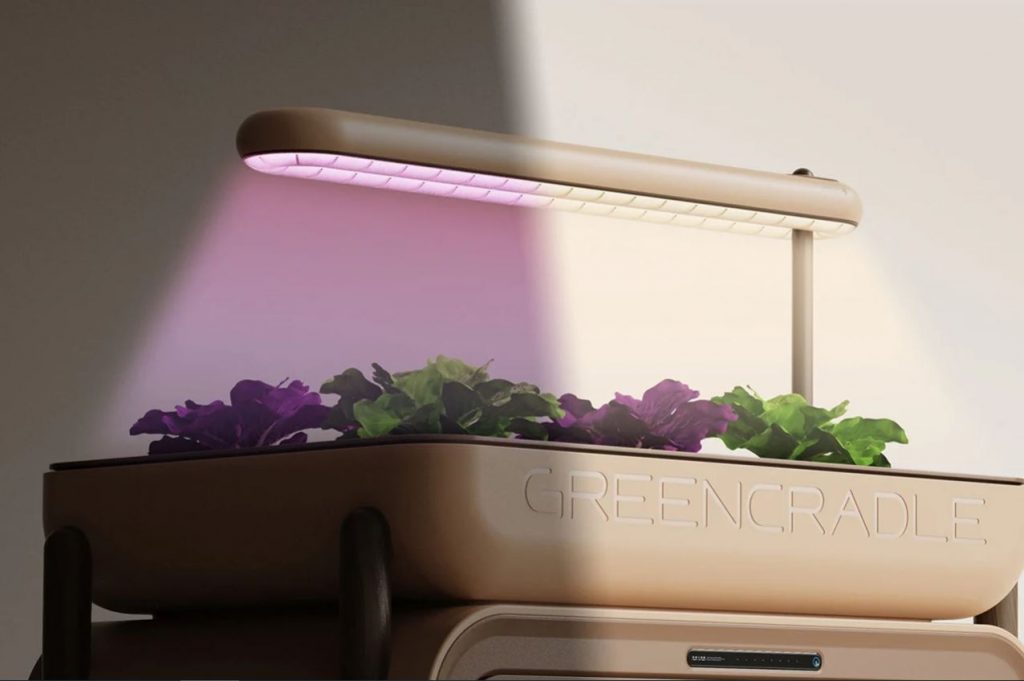
Paradise by Robin Akira (via yanko design)
Beneath the reservoir, users can find a status bar that indicates the overall health of each plant. The plant cultivator utilizes integrated technology to prompt users when the plants need tending. An internal chip of the machine controls temperature, intelligent constant temperature fermentation, a regular reminder to discharge fertilizer liquid, storage for secondary use.
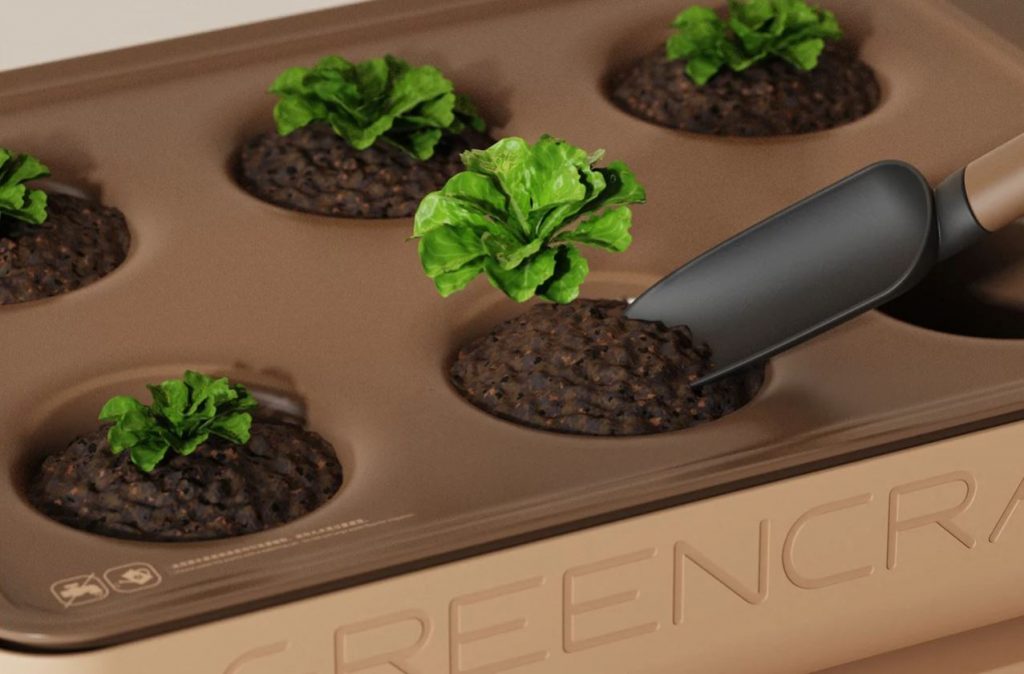
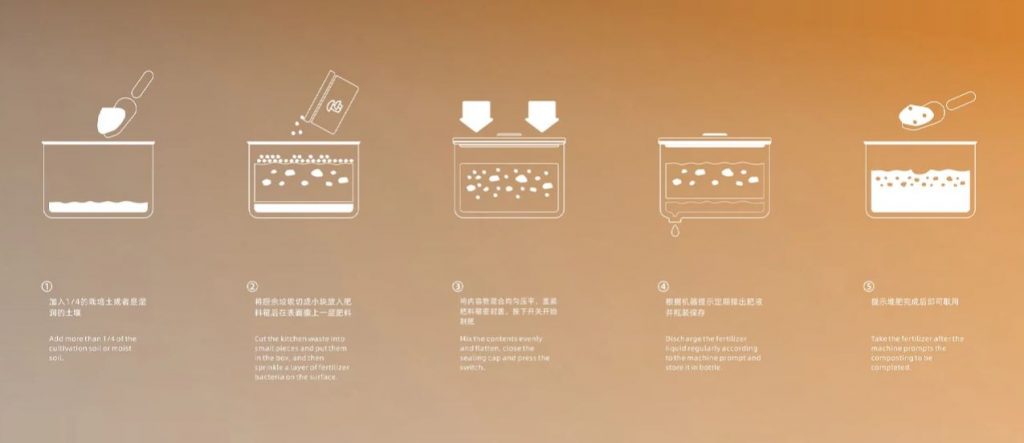
Paradise by Robin Akira (via yanko design)
Just below the status bar is the fertilizer bin where the user can deposit their kitchen waste over the soil before adding fertilizing bacteria to start the process. Once the contents are mixed together, an odor-sealing lid can be placed on top and the machine takes care of the rest, prompting users to discharge the fertilizer liquid and indicating when the composting has finished.
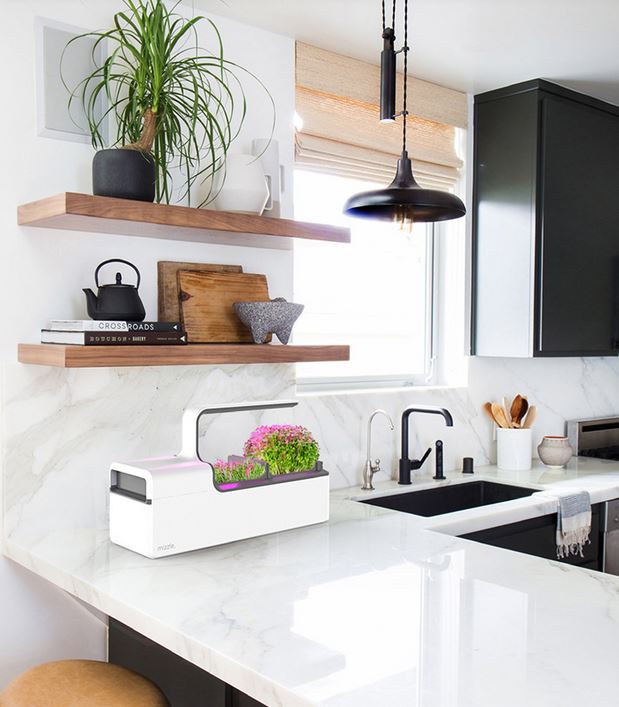
Mizzle by Gökhan Çetinkaya and Deniz Ibanoğlu
Smart aeroponic kitchen appliance created by design duo Gökhan Çetinkaya from Ankara and Deniz Ibanoğlu based in Berlin is intended for growing microgreens. Named Mizzle, the smart cultivator consists of three compartments. One is meant for the germination process and is therefore closed to obtain a dark space, while two others are open to light for the growth and harvesting process.
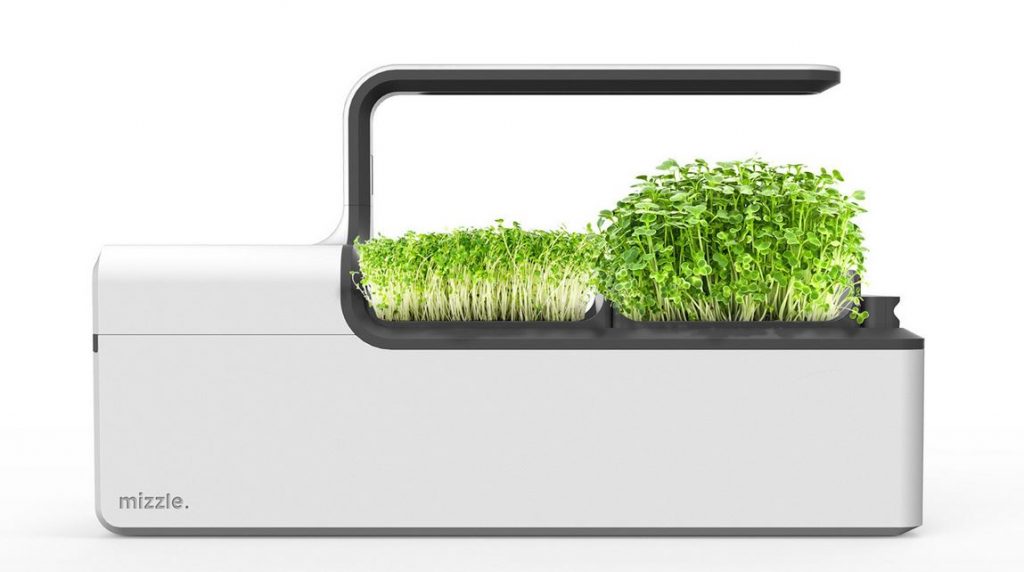
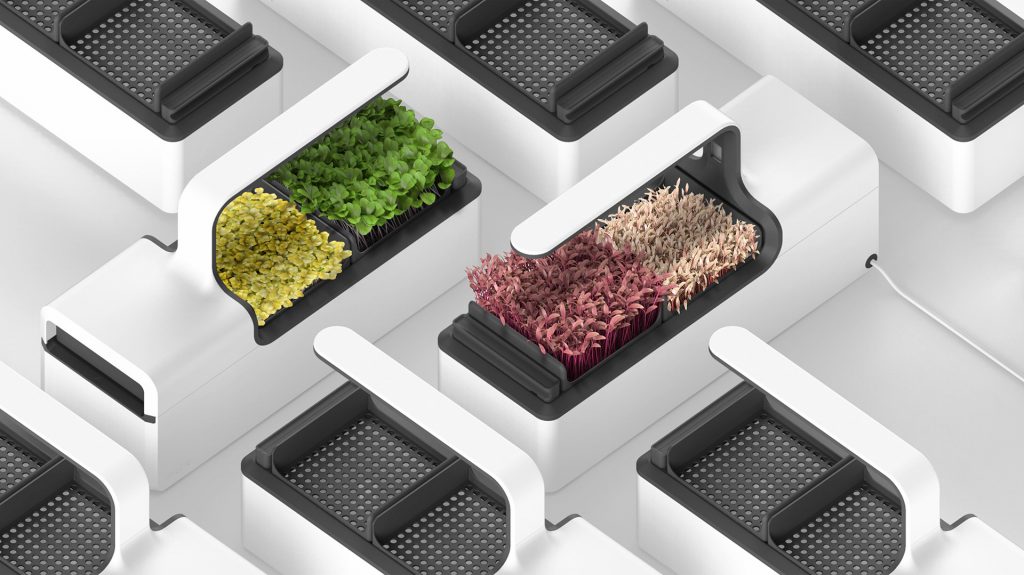
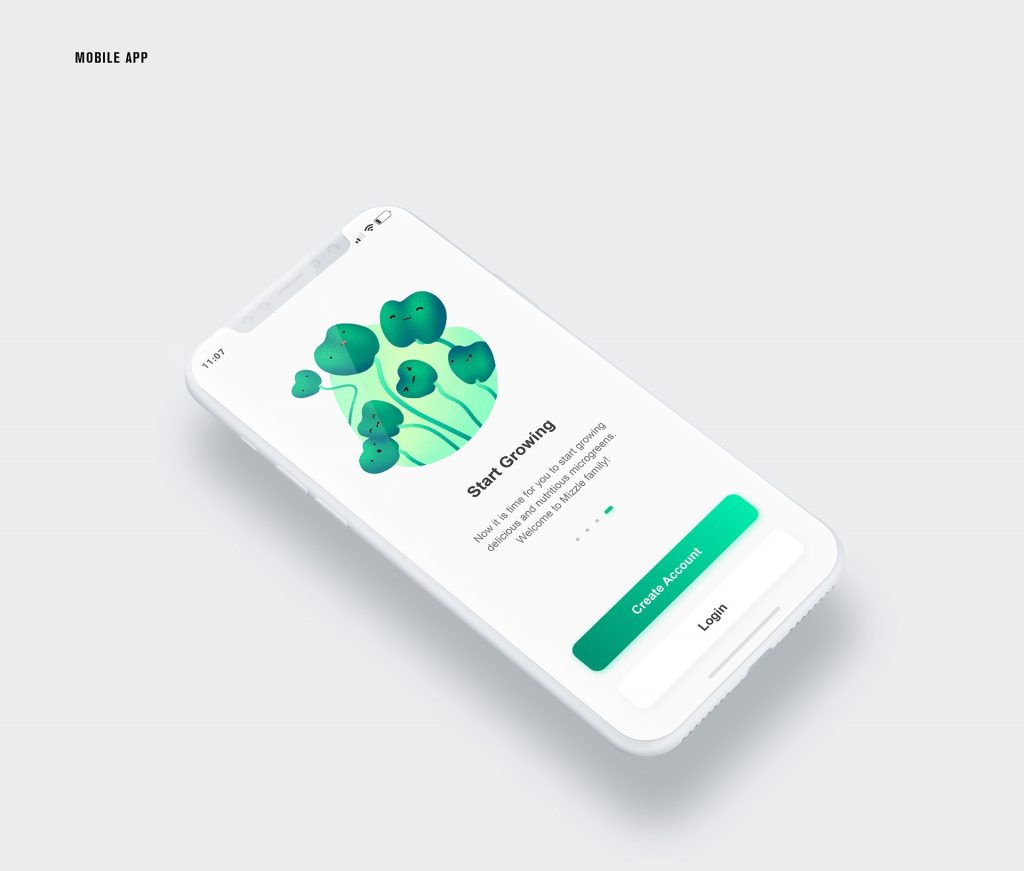
Mizzle by Gökhan Çetinkaya and Deniz Ibanoğlu
Above the compartments, the user places trays with an aeroponic growing pad, which has the microgreen seeds in it, to initiate the growing process. Mizzle operates with an aeroponic system with each tray watered automatically via a sprinkler and sensors. The growth process can be tracked via a mobile app, which also sends useful notifications with regards to water levels in the tank.